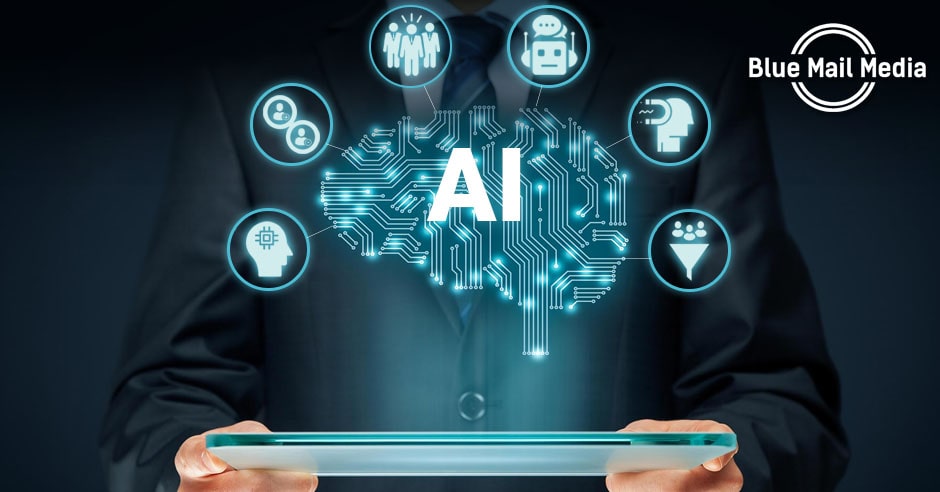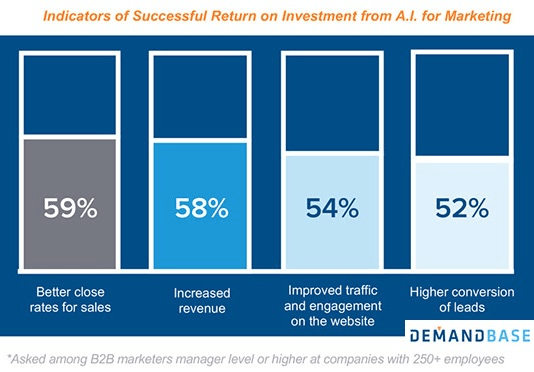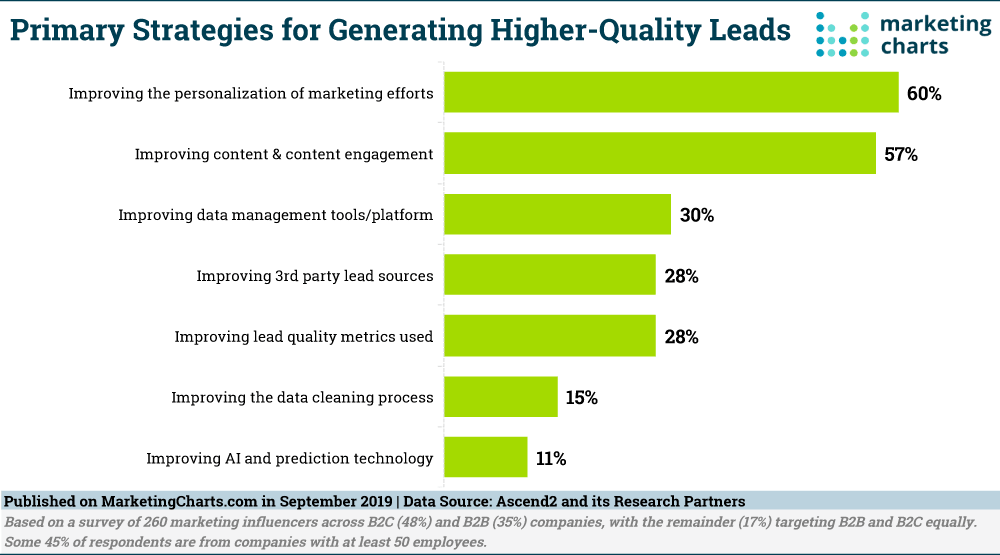For 85% of B2B marketers, lead generation is one of the most important goals. They use several inbound and outbound tactics to achieve this goal. But thanks to technological advancements, they now have a very powerful tool in their lead generation arsenal – Artificial Intelligence.
This article explores how B2B marketers can use AI for lead generation in 2021 and the coming years.
How AI Will Revolutionize the Lead Generation Technology For B2B
AI has disrupted many industries, and the B2B industry is no different. Statistics indicate AI lead generation technology generates more leads than the current marketing methods, with businesses reporting 59% better close rates, 58% revenue boost, 54% improvement in web traffic and engagement, and 52% higher conversion leads. Impressive, isn’t it?
But, how does AI helps businesses achieve all these benefits? Here’s how:
A Better Understanding of Buyers Behavior
AI-powered lead generation technologies, use data on the existing customers and potentially interested customers to understand customer behavior and better predict how they’ll behave in the future.
Automated Lead Scoring Using AI
AI solutions provide an automated lead scoring function to let B2B marketers know which leads have the highest potential of conversion based on the data contained in their system. There are several benefits of automated lead scoring in lead generation using AI, such as:
- Businesses can focus on high-quality leads, thus improving their efficiency.
- Businesses will be able to identify the leads that need some more outreach to get them closer to converting.
Increased Lead Generation
AI-powered lead generation technology can help businesses generate more leads from the traffic coming to their website. Here’s how:
Chatbots for lead generation is a new powerful marketing tool. They use AI to learn from the conversations between the buyers and sales representatives on the websites. From this knowledge, the bots learn what a good quality lead looks like. Secondly, AI make use of all of the information that businesses have to identify leads. After that, they manage leads at various development stages, leading to an increase in the number of leads for businesses.
Automated Lead Engagement Using AI
Humans have their own limitations. They may get a high number of leads using AI lead generation, but most of them might become missed opportunities because of their inability to follow-up with them. But not anymore! With automated lead engagement using AI, leads can be nurtured via SMSes, emails, and online chats to make sure not even one opportunity is missed.
AI uses natural language processing to hold real conversations with the leads and create logical responses that help them move along the sales funnel.
Unmatched Personalization For Lead Generation
Lead generation is all about engagement—the more engaged your prospects, the better their chances of converting into customers. Personalization is a great way of doing it. Studies indicate improving personalization is one of the most important strategies for high-quality lead generation. As many as 60% of marketers agree with it.
AI for lead generation can personalize the content being offered to the prospects; for example, it can display hyper-relevant content to website visitors based on their browsing patterns and the type of content they have consumed in the past. It can also target the prospects with the advertising meant to drive them to their website. This creates a new pool of leads for businesses that they can nurture to convert them into customers.
The Future Of AI In B2B Lead Generation
With its present capabilities, AI has already upped the level of lead generation technologies of today, and the future seems even more promising. Here are some lead generation trends we can expect with AI in the future.
- Increased creativity in the content: With AI doing all the optimization and analysis, marketers will have more time to focus more on their work’s creative aspects.
- Greater control over the content: AI will give companies the ability to control which content they show their audience.
- No irrelevant content: In the future, thanks to AI, all the unnecessary content will be weeded out, and the customers will be shown only what they need.
- Hyper-accurate content searches: Content searches will become more accurate, which means the marketers will have to work harder and smarter to convince the AI engines that their content is what the customers are looking for.
Conclusion
B2B marketers spend a good amount of their marketing dollars and resources attracting visitors to their website. With all that effort, people do visit their website, yet many leave without exploring further than the first page. Using AI lead generation, marketers can understand visitor’s intent and use that data to offer relevant content to the visitors while also optimizing their website’s business goals. The result will be a great experience for the visitors and several good quality leads for the businesses.



